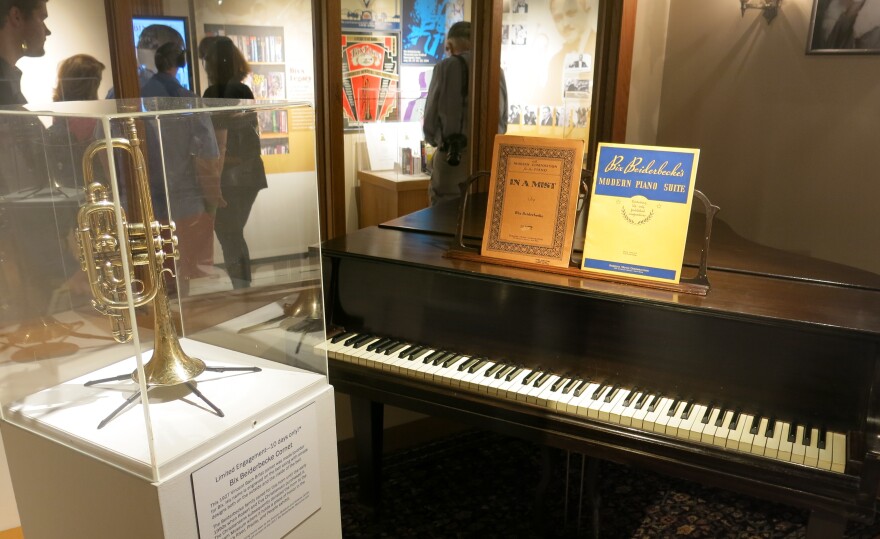
The Friends of the Davenport Public Library recently won a grant from the state of Iowa to make material about jazz legend Bix Beiderbecke much more accessible to the public.
The library won nearly $15,000 from the Iowa Department of Cultural Affairs to digitize audio recordings for the Bix Beiderbecke Museum and World Archive, which opened three years ago in the lower level of the River Music Experience, in downtown Davenport.
The collection of 239 reel-to-reel tapes and other media formats, including cassettes, CDs, and VHS tapes, has been stored in the lower level of the Davenport Main Library, according to Kathryn Kuntz, special collections supervisor at the library.
"Since audio-visual materials require a little bit more care than just our regular paper documents, we want to make sure that we’re not doing any harm trying to use them. So this grant, through the HRDP, is a really great opportunity to digitize them and make them accessible to the public.”
The HRDP is the state Historical Research Development Program (under IDCA), which makes annual grants for documentary collection, in partnership with the State Historical Society.
Kuntz says for the past two years, the library has tried to find ways to make the museum collection more accessible to the public, through the library’s website.
"They have an archival collection they wanted to provide better housing for and more access to – because their space is pretty much the museum at the RME. So in partnership with them, they’re still the owners of the collection, but we are the stewards. We have taken on the charge to provide access and preserve these materials for them.”

The tapes include interviews with contemporaries of Bix, who died in 1931; people who have been influenced by him; other jazz greats, and recordings of music. The digitization will be done by Media Transfer Services in New York, which is expert in the field and works with many libraries, historical and cultural institutions.
The company will stabilize the recordings as well as make digital copies. The project will not digitize the documents, and there'll be links from the Bix museum website as well, bixmuseum.org.
“That way, people can find them from all over the world, and our local community, so people know we have them and can make use out of them.”
Nathaniel Kraft, Bix Museum director, said he’d like to include some of the recordings in a future exhibit. Since reopening July 1, the museum has seen visitors from all over the country, though he says it’s much less than a typical summer.
Hours are 10 a.m. to 5 p.m. Monday-Friday. Saturdays are by appointment only. Admission is free but donations are gratefully accepted.




